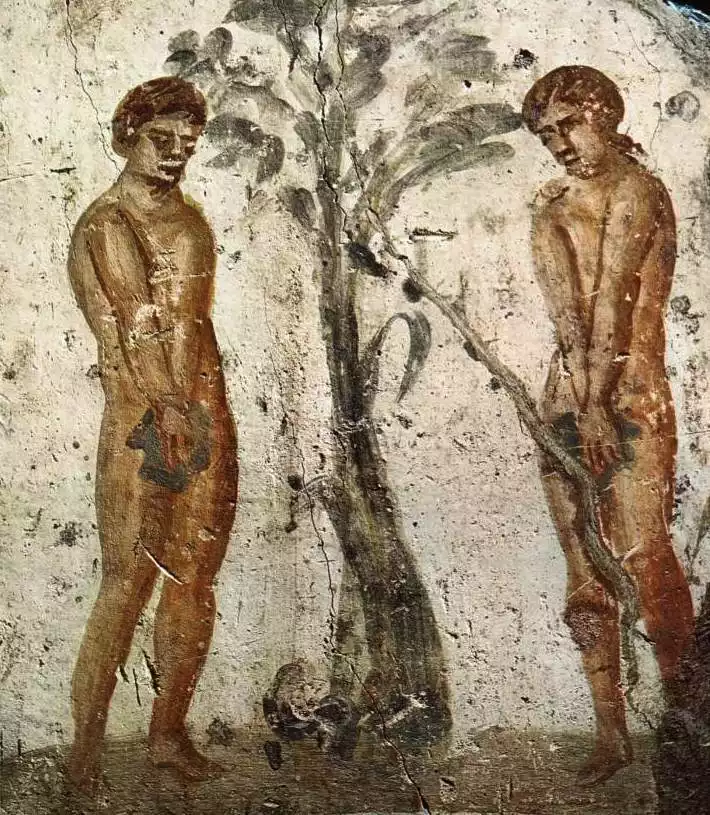Zaavan | זָעַוָּן (Hebrew) | Name
Etymology and Semantic Analysis The name Zaavan, originating from Hebrew, appears in the Old Testament. Specifically, the Hebrew word זָעַוָּן (Zaavan) signifies agitation or trembling. The semantic field surrounding Zaavan associates with restlessness or unease, hinting at the nomadic and turbulent lifestyle of the era. Biblical references to Zaavan are found in the genealogical records […]
Yea | ναί (nai) | Greek (adverb)
Etymology and Semantic Analysis The word ‘yea’ in English translations of the Bible is derived from the Old English ‘gēa’, signifying affirmation or truth. In the Greek New Testament, ‘yea’ often translates as ‘ναί’ (nai), serving as a term of strong affirmation or agreement. This adverb is most prominent in the New Testament, reflecting a […]
Yarn | חוּט (Chut) | Noun
Etymology and Semantic Analysis The English word ‘yarn’ is synonymous with a long, continuous strand of interlocked fibers used for knitting or weaving. In the Bible, the Hebrew term חוּט (Chut) represents ‘yarn’ or ‘thread’. The word appears in a handful of Old Testament verses but is notably absent in the New Testament Greek texts. […]
The Second Book of the Kings, 2 Kings

Translation in British English (The Second Book of the Kings) 1:1 Subsequently, Moab revolted against Israel following Ahab’s demise. 1:2 Ahaziah plummeted through a lattice in his upper chamber in Samaria, becoming gravely ill. He dispatched messengers, instructing them, “Seek guidance from Baalzebub, the deity of Ekron, regarding my recovery from this illness.” 1:3 Yet, […]
Youth | נעורים (Hebrew) | na’ar (Name)
Etymology and Semantic Analysis The English word ‘youth’ refers to the early period of life, particularly the time before one reaches adulthood. This word is translated from the Hebrew word ‘נעורים’ (na’ar), which also means young person or youth, but its usage in biblical texts carries a broader context. In the Old Testament, ‘na’ar’ is […]
Yoke | Ζυγός (zygos) | Noun
Etymology and Semantic Analysis The word ‘yoke’ in English is a direct translation of the Greek word ‘ζυγός’ (zygos), signifying an instrument used to join two animals, typically oxen, together for the purpose of plowing or pulling a load. This concept is present throughout the Bible, symbolizing a range of meanings from oppression and burden […]
Drink | πίνω (pino) | Verb
Etymology and Semantic Analysis The word ‘drink’ in English is derived from the Old English ‘drincan’, signifying the act of consuming a liquid. In the New Testament, the Greek verb πίνω (pino) is frequently used, encapsulating both the physical act of drinking and metaphorical interpretations. Notable occurrences of πίνω are found in various contexts, such […]
Dwell | (Greek: κατοικέω, Hebrew: שָׁכַן) | Verb
Etymology and Semantic Analysis The English word ‘dwell’ originates from the Old English ‘dwelian,’ meaning to mislead or to err. However, over time, its meaning shifted to ‘delay,’ ‘linger,’ and eventually ‘remain.’ In the Biblical context, ‘dwell’ predominantly translates from the Greek word ‘κατοικέω’ (katoikeō) and the Hebrew word ‘שָׁכַן’ (shakan). ‘Katoikeō’ carries the connotation […]
Dream | חֲלוֹם (Chalom) – Hebrew | ὄναρ (Onar) – Greek | Noun
Etymology and Semantic Analysis The English word ‘dream’ originates from the Old English ‘drēam,’ which historically meant joy or music but evolved to denote the images and emotions experienced during sleep. In the Hebrew Bible, ‘dream’ is primarily translated from חֲלוֹם (Chalom), while in the New Testament, the Greek term ὄναρ (Onar) is used. Dreams […]
Dominion | κυριότης (kyriotēs) | Noun
Etymology and Semantic Analysis The term ‘dominion’ finds its roots in the Old French ‘dominion,’ which originated from the Latin ‘dominio,’ denoting ownership or control. In the Biblical context, especially in the New Testament, it translates to the Greek word κυριότης (kyriotēs), which signifies lordship or sovereign power. This term occurs in passages like 2 […]
Devil | Διάβολος: The Many Faces of Evil

The figure of “the Devil” appears in various forms throughout the Bible, from the talking serpent in Genesis to the dragon of Revelation. He is depicted as tempter, accuser, fallen angel, and personification of evil. This complex character has roots in ancient Jewish and early Christian texts and has evolved significantly over the centuries. While […]
Destroy ἀπόλλυμι (apollymi) | Verb
Etymology and Semantic Analysis The English word ‘destroy’ is translated in the New Testament primarily from the Greek verb ἀπόλλυμι (apollymi), which carries a range of meanings including to destroy, lose, or perish. This verb is a complex term encompassing both the cessation of existence and the concept of ruin without complete annihilation. In the […]
Desolate in the Bible | ἔρημος (erēmos) | Adjective
Etymology and Semantic Analysis The word ‘desolate’ in English, conveying a sense of abandonment or emptiness, is often translated from the Greek word ‘ἔρημος’ (erēmos), an adjective found frequently in the New Testament. This Greek term carries connotations of solitude, barrenness, and isolation, painting pictures of uninhabited and desolate places or the emotional state of […]
Desire in the Bible | ἐπιθυμία (epithymia) | Noun
Etymology and Semantic Analysis The English word ‘desire’ is a complex term encapsulating longing, craving, or a strong wish. Its Greek equivalent, ἐπιθυμία (epithymia), found in the New Testament, conveys a similar spectrum of intense yearnings, whether noble or ignoble. This term appears in various contexts, from the harmless longing for food (Philippians 1:23) to […]
Depart in the Bible | ἀπέρχομαι (Greek) | Verb
Etymology and Semantic Analysis The English word “depart” is derived from the Old French ‘departir’, meaning to divide or separate. In the Bible, its Greek counterpart is ἀπέρχομαι (apérchomai), a verb signifying to go away, leave, or depart. This word appears in several New Testament passages, reflecting various contexts. For instance, in Matthew 8:34, it […]
Quirinius | (Greek: Κυρήνιος) | Name
Definition Quirinius, a Roman name, refers to Publius Sulpicius Quirinius, a historical figure mentioned in the New Testament, specifically in the Gospel of Luke. He is noted for his role as a Roman governor who conducted a census during the time of Jesus’ birth. Various Translations In the King James Version of the Bible, the […]
Quaternions in the Bible | Greek: τετράδιον (tetradion) | Noun
Definition The term “quaternions” in Biblical context refers to a group of four soldiers. This word is specifically used in the New Testament to describe the Roman military practice of assigning four soldiers to guard a prisoner. The concept of a quaternion is intrinsically linked to the Roman military system and its administrative practices. Various […]
Gospel of Mark | A Comprehensive Analysis

The Gospel of Mark, believed to be the earliest of the four canonical gospels, presents a vivid and concise account of Jesus Christ’s ministry. Though its exact date of composition remains debated among scholars, most estimates place it between AD 65 and 75. Unlike other gospels, Mark’s narrative is notably more action-oriented, emphasizing deeds over […]
Adam and Eve | The First Humans

Adam and Eve, traditionally believed to be the first humans created by God, hold a significant place in Christian theology and mythos. Their story, primarily chronicled in the Book of Genesis, has been a subject of profound religious and cultural importance. Although the exact dates of their lives remain shrouded in the realms of theological […]
